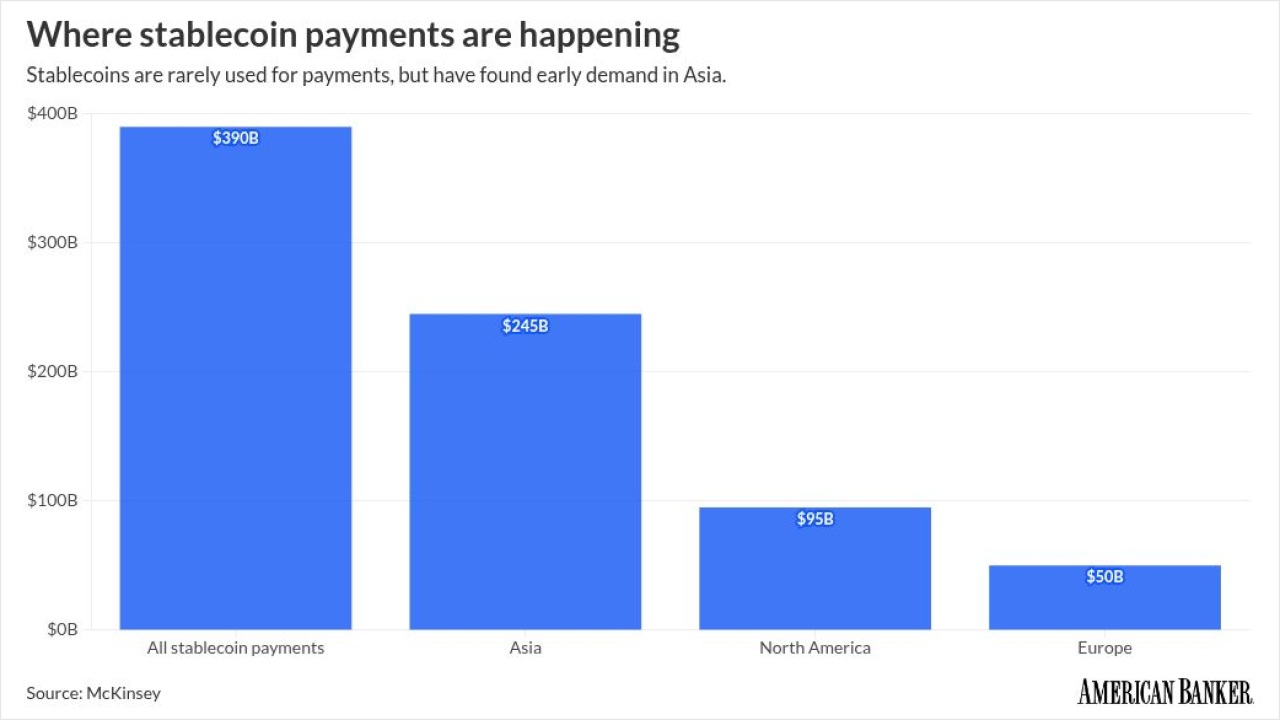Laurence H. Meyer, the Federal Reserve Board's newest governor, has a conservative exterior and a liberal heart.
Processing Content
The former Washington University professor, who won top honors in 1986, 1993, and 1996 for economic forecasting, at first sounds like some of his Republican-appointed colleagues. He wants to cut rules, expand bank powers, and allow more mergers.
But when it comes to consumer protection issues, Mr. Meyer's tune begins to change. Rather than leaving the market unsupervised, Mr. Meyer favors rules requiring banks to disclose their rates and fees, and he objects to efforts that would make it harder for activists to raise Community Reinvestment Act challenges.
"There is a balance of interests here," Mr. Meyer said in a recent interview. "You have to balance the interests of consumers versus the regulatory costs. That is an extraordinary effort."
For example, Mr. Meyer supports proposed changes to the merger and data processing rules contained in Regulation Y, saying the government should not impede the ability of well-managed banks to compete by drowning them in paperwork and restrictions.
But he also said any move to speed merger approvals must give activists enough time to raise community reinvestment issues.
"I support the thrust of the Reg Y proposal," he said. "But we do need to weigh carefully its impact on community reinvestment."
Mr. Meyer is a strong believer that banks must enter new businesses if they hope to thrive in the next century. High on his list are securities underwriting, limited insurance underwriting, and full-scale insurance sales.
Regulators, however, must ensure that the government does not subsidize these businesses by allowing banks to finance them with insured deposits, he said. Deposit insurance artificially suppresses the cost of funds for banks, he said, giving them an advantage over investment houses and insurance companies.
That's why he supports requiring the use of Fed-regulated holding company affiliates, rather than direct bank subsidiaries.
"It is less costly for banking companies to operate these activities as subsidiaries of the bank," he said. "But is part of that because they get the subsidy of the safety net? Probably."
Yet his opposition is much less strident than that of other Fed governors. "This isn't an absolutely settled issue," he said. "I'm not digging my heels in."
Mr. Meyer said he is worried that the debate over whether subsidiaries of banks or holding companies are best will derail the entire financial modernization effort.
"We have some very important decisions to make," he said. "A constructive process would be one where we didn't rush to judgment."
Mr. Meyer is working long hours to get up to speed. Colleagues said he arrives by 7:30 a.m. and stays long after other Fed governors have gone home. He is a stickler for small details and is quickly earning a reputation as one of the most well-prepared governors at policy meetings.
"He's made a tremendous hit as a governor," one official said.
Mr. Meyer is quickly becoming the key governor on consumer and community issues. That's fortunate because he's about to be the only governor left on the committee. Lawrence B. Lindsey resigned from the Fed on Wednesday to join the American Enterprise Institute, and Janet R. Yellen is expected to leave within weeks to become chairman of the Council of Economic Advisers.
Mr. Meyer also sits on the Fed's committees that oversee supervision and regulation, economic policy, and reserve bank operations.
He brings modest banking experience to the Fed job, having spent nearly 25 years advising Mark Twain Bancshares on the economy and interest rates.
The bank even became his first client 15 years ago when he opened Laurence H. Meyer & Associates, a consulting firm that provided economic forecasts to government agencies and private businesses.
Mark Twain president John Dubinksy said that as a former small- businessman, Mr. Meyer understands the burden of government regulations. "Once he started his own company, he was not only an economist, but a businessman," he said. "He learned what it was like to meet a payroll and have a business plan."
Mr. Meyer's positions on consumer issues appear to share a common theme: He favors requiring banks to provide enough information on their products so consumers can make intelligent decisions.
"Getting rid of Truth-in-Savings or Truth-in-Lending would be moving backward," he said. "But that doesn't mean we can't reduce regulatory burden."
One area where he sees little need for government intervention is mergers. Most local markets remain highly competitive despite massive consolidation, he said.
Also, the demise of interstate banking restrictions has paved the way for out-of-state banks to expand into new markets, bringing in powerful competitors that can challenge homegrown institutions, according to Mr. Meyer.
Mr. Meyer said he still is adjusting to the differences between life as a professor and as a Fed governor. One thing he misses is the casual camaraderie of a college campus: He used to run into fellow economic professors all the time, but now must make an effort to reach his former colleagues.










